🌊 Water Is Life. It Is Death. It Represents A Cosmological Cycle Of Both In Many Ethnic Groups In





🌊 Water is life. It is death. It represents a cosmological cycle of both in many ethnic groups in the Philippines.
Today we are going to discuss and learn about some Ilokano folklore on the sea and water. From the Ilokano god of the rivers and sea, Apo Litao, to the cosmological beliefs involving the water and sea.
🌿 RECOMMENDED READING:
For more on Ilokano folklore and practices, I highly suggest reading El Folk-lore Filipino by Isabelo de los Reyes and Way of the Ancient Healer by Virgil Mayor Apostol @ virgilmapostol on IG . (Both books which I credit and gained all the info listed here).
The lovely sirena artwork pictured on the second photo is by Sarah DeMonteverde @ ilandtuitles on IG (go follow her because her artwork is amazing!) ❤
FOLLOW ME ON SOCIAL MEDIA FOR MORE!
▪️@ IG ( https://www.instagram.com/thepinaywriter/ )
▪️@ Tiktok ( https://www.tiktok.com/@thepinaywriter )
▪️@ Twitter ( https://twitter.com/thepinaywriter )
▪️@ Blog ( https://thepinaywriter.com)
▪️@ Spiritual and Botanical Shop ( https://hirayabotanicals.com)
More Posts from Penguka and Others


PHILIPPINE GODS AND GODDESSES: Bathala
Bathala, also known as Abba, is said to be the creator of everything. He dwells in the sky which is called Kawalhatian together with the lesser gods and goddesses. He is kind, giving the people everything they need to the point of spoiling them. This was where the Filipino saying “Bahala na” (come what may) came from. It is also known that Bathala sends anito (ancestor spirits, nature spirits, and deities) to help mankind with their daily activities.
photo credits: ledsetgo & melisica

Babaylan Knowledge: A Complete Tutorial About Herbal Medicine in the Philippines
Certain herbs, even some fruits are used as traditional and alternative medicine in the Philippines. This Buzzle article presents information on some popular medicinal plants, which are approved by the Department of Health, Philippines. […] Source: A Complete Tutorial About Herbal Medicine in the Philippines

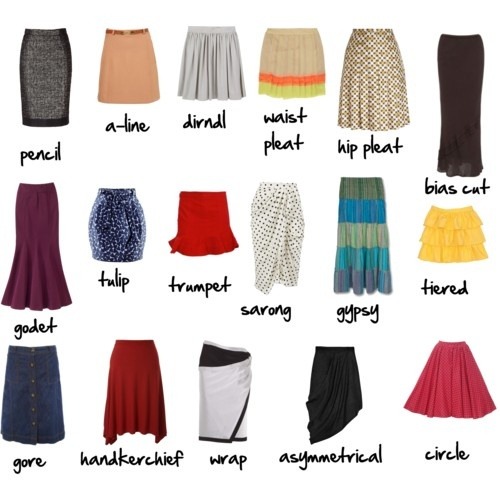
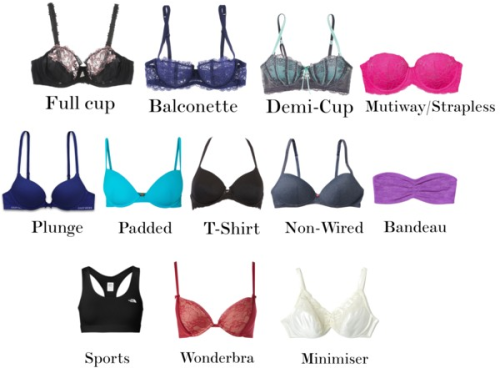


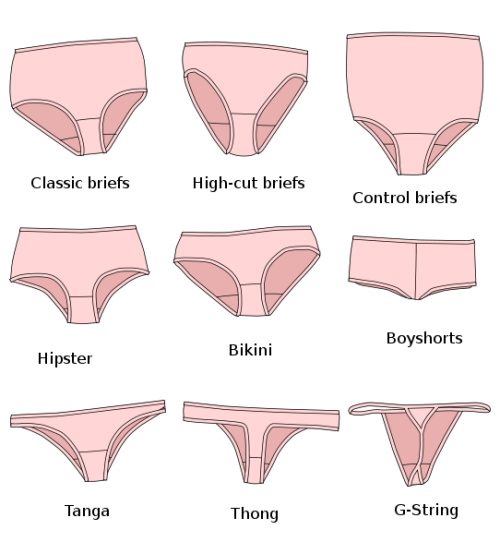
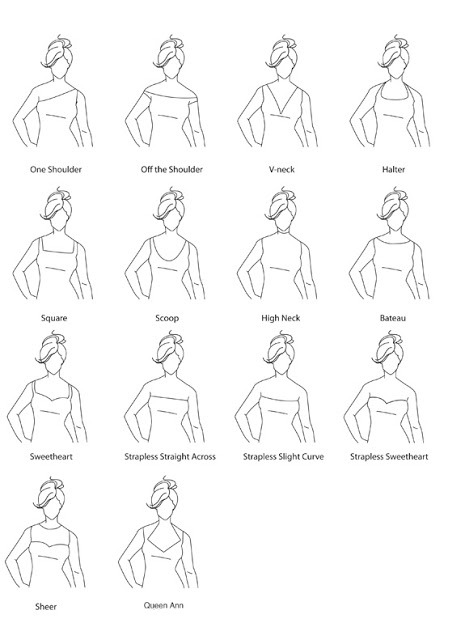



A Visual #Fashion Guide For Women - Necklines, Skirt Types & More!
By KikiCloset.com

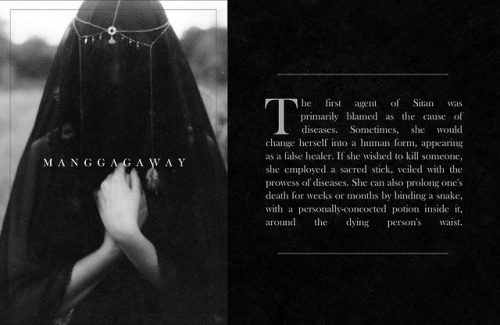

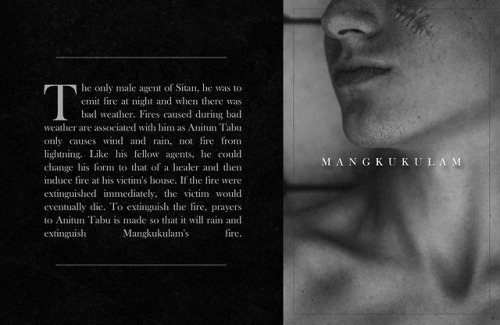
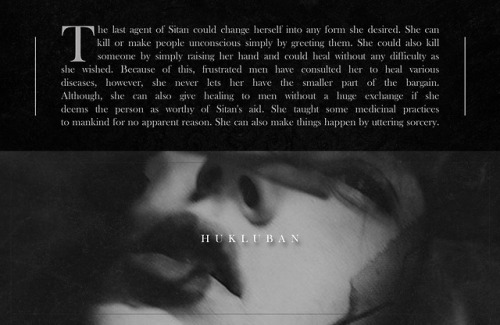
PHILIPPINE GODS AND GODDESSES: The Four Agents of Sitan
In Tagalog mythology, Sitan (the Guardian of Kasamaan) had four agents whose task was to lead mankind to sin and destruction. These four agents were Manggagaway (Disease), Manisilat (Breaker of Families), Mangkukulam (Fire), and Hukluban (Death).
I've made this post like six times but it still fucks me up the China's mountains just look like that. Like I spent decades thinking it was stylistic but no, they just have different mountains over there.
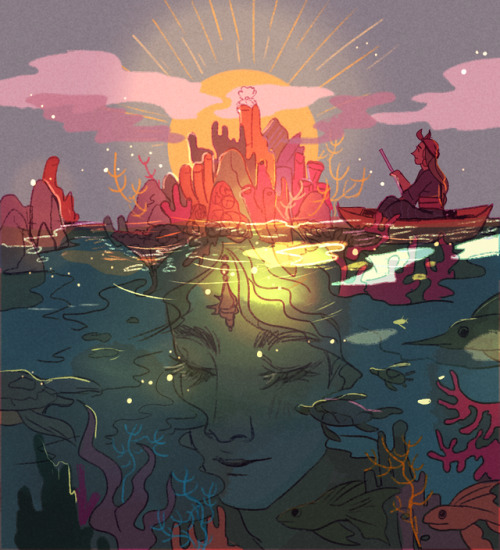
Luyong Baybay, A Philippine goddess who was in love with the moon. Her name means “She who was born from the waves”.
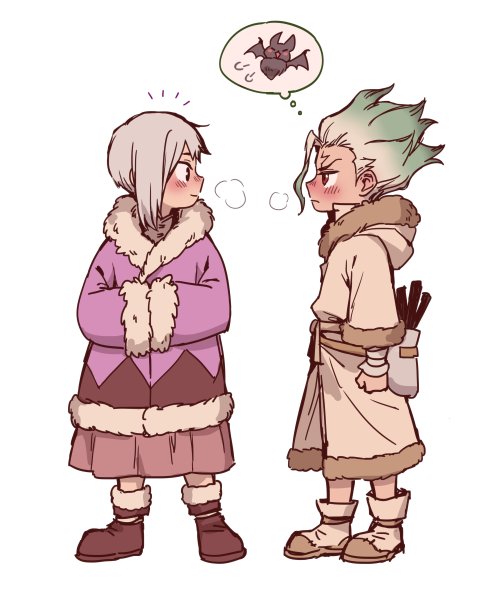




my old doodles with winter sengen ❄️
when i tell u i left everything for this-

why do i love u sm why?! ill do the same for you if tumblr notified me, but pls, it's prob smth u don't want to see, tumblrs lying 😭😭
Writing advice #?: Have your characters wash the dishes while they talk.
This is one of my favorite tricks, picked up from E.M. Forester and filtered through my own domestic-homebody lens. Forester says that you should never ever tell us how a character feels; instead, show us what those emotions are doing to a character’s posture and tone and expression. This makes “I felt sadness” into “my shoulders hunched and I sighed heavily, staring at the ground as my eyes filled with tears.” Those emotions-as-motions are called objective correlatives. Honestly, fic writers have gotten the memo on objective correlatives, but sometimes struggle with how to use them.
Objective correlatives can quickly become a) repetitive or b) melodramatic. On the repetitive end, long scenes of dialogue can quickly turn into “he sighed” and “she nodded” so many times that he starts to feel like a window fan and she like a bobblehead. On the melodramatic end, a debate about where to eat dinner can start to feel like an episode of Jerry Springer because “he shrieked” while “she clenched her fists” and they both “ground their teeth.” If you leave the objective correlatives out entirely, then you have what’s known as “floating” dialogue — we get the words themselves but no idea how they’re being said, and feel completely disconnected from the scene. If you try to get meaning across by telling us the characters’ thoughts instead, this quickly drifts into purple prose.
Instead, have them wash the dishes while they talk.
To be clear: it doesn’t have to be dishes. They could be folding laundry or sweeping the floor or cooking a meal or making a bed or changing a lightbulb. The point is to engage your characters in some meaningless, everyday household task that does not directly relate to the subject of the conversation.
This trick gives you a whole wealth of objective correlatives. If your character is angry, then the way they scrub a bowl will be very different from how they’ll be scrubbing while happy. If your character is taking a moment to think, then they might splash suds around for a few seconds. A character who is not that invested in the conversation will be looking at the sink not paying much attention. A character moderately invested will be looking at the speaker while continuing to scrub a pot. If the character is suddenly very invested in the conversation, you can convey this by having them set the pot down entirely and give their full attention to the speaker.
A demonstration:
1
“I’m leaving,” Anastasia said.
“What?” Drizella continued dropping forks into the dishwasher.
2
“I’m leaving,” Anastasia said.
Drizella paused midway through slotting a fork into the dishwasher. “What?”
3
“I’m leaving,” Anastasia said.
Drizella laughed, not looking up from where she was arranging forks in the dishwasher. “What?”
4
“I’m leaving,” Anastasia said.
The forks slipped out of Drizella’s hand and clattered onto the floor of the dishwasher. “What?”
5
“I’m leaving,” Anastasia said.
“What?” Drizella shoved several forks into the dishwasher with unnecessary force, not seeming to notice when several bounced back out of the silverware rack.
See how cheaply and easily we can get across Drizella’s five different emotions about Anastasia leaving, all by telling the reader how she’s doing the dishes? And all the while no heads were nodded, no teeth were clenched.
The reason I recommend having it be one of these boring domestic chores instead of, say, scaling a building or picking a lock, is that chores add a sense of realism and are low-stakes enough not to be distracting. If you add a concurrent task that’s high-stakes, then potentially your readers are going to be so focused on the question of whether your characters will pick the lock in time that they don’t catch the dialogue. But no one’s going to be on the edge of their seat wondering whether Drizella’s going to have enough clean forks for tomorrow.
And chores are a cheap-n-easy way to add a lot of realism to your story. So much of the appeal of contemporary superhero stories comes from Spider-Man having to wash his costume in a Queens laundromat or Green Arrow cheating at darts, because those details are fun and interesting and make a story feel “real.” Actually ask the question of what dishes or clothing or furniture your character owns and how often that stuff gets washed. That’s how you avoid reality-breaking continuity errors like stating in Chapter 3 that all of your character’s worldly possessions fit in a single backpack and in Chapter 7 having your character find a pair of pants he forgot he owns. You don’t have to tell the reader what dishes your character owns (please don’t; it’s already bad enough when Tolkien does it) but you should ideally know for yourself.
Anyway: objective correlatives are your friends. They get emotion across, but for low-energy scenes can become repetitive and for high-energy scenes can become melodramatic. The solution is to give your characters something relatively mundane to do while the conversation is going on, and domestic chores are not a bad starting place.









mythology family ♥︎ hanan for @gisabarrovv
in tagalog mythology, hanan is the goddess of morning, dawn, child birth and new beginnings. she is one of the three demigod daughters of bathalang, the creator of the universe. hanan is the sister of mayari (goddess of the moon), and tala (goddess of the stars).
-
 moongazer3030 liked this · 3 weeks ago
moongazer3030 liked this · 3 weeks ago -
 yugenmidori liked this · 1 month ago
yugenmidori liked this · 1 month ago -
 shrimphappens liked this · 4 months ago
shrimphappens liked this · 4 months ago -
 dancingmusique liked this · 7 months ago
dancingmusique liked this · 7 months ago -
 snowyrabbit liked this · 9 months ago
snowyrabbit liked this · 9 months ago -
 heavens-aesthetic-kitchen liked this · 10 months ago
heavens-aesthetic-kitchen liked this · 10 months ago -
 puppykong liked this · 1 year ago
puppykong liked this · 1 year ago -
 croi-en liked this · 1 year ago
croi-en liked this · 1 year ago -
 the-pink-prince reblogged this · 1 year ago
the-pink-prince reblogged this · 1 year ago -
 rubyjadebon liked this · 1 year ago
rubyjadebon liked this · 1 year ago -
 avizaishi liked this · 1 year ago
avizaishi liked this · 1 year ago -
 glychtheragdoll liked this · 1 year ago
glychtheragdoll liked this · 1 year ago -
 haynakomilo liked this · 1 year ago
haynakomilo liked this · 1 year ago -
 zee-is-lazy liked this · 1 year ago
zee-is-lazy liked this · 1 year ago -
 cowndalf593 liked this · 1 year ago
cowndalf593 liked this · 1 year ago -
 killoi1228 reblogged this · 1 year ago
killoi1228 reblogged this · 1 year ago -
 fairedoll liked this · 1 year ago
fairedoll liked this · 1 year ago -
 dash0okening liked this · 1 year ago
dash0okening liked this · 1 year ago -
 irithnova liked this · 1 year ago
irithnova liked this · 1 year ago -
 roosterscorner liked this · 1 year ago
roosterscorner liked this · 1 year ago -
 poseidonhatesme liked this · 1 year ago
poseidonhatesme liked this · 1 year ago -
 jojotier liked this · 1 year ago
jojotier liked this · 1 year ago -
 semper-ebrium liked this · 1 year ago
semper-ebrium liked this · 1 year ago -
 dropsofreyn liked this · 1 year ago
dropsofreyn liked this · 1 year ago -
 geyadronedihada liked this · 1 year ago
geyadronedihada liked this · 1 year ago -
 sweet-soft-fembot liked this · 1 year ago
sweet-soft-fembot liked this · 1 year ago -
 whatifyouleftme reblogged this · 1 year ago
whatifyouleftme reblogged this · 1 year ago -
 whatifyouleftme liked this · 1 year ago
whatifyouleftme liked this · 1 year ago -
 frio-fresco reblogged this · 1 year ago
frio-fresco reblogged this · 1 year ago -
 dnalkaline liked this · 1 year ago
dnalkaline liked this · 1 year ago -
 madiarts123 liked this · 1 year ago
madiarts123 liked this · 1 year ago -
 bonniefaciolatido reblogged this · 1 year ago
bonniefaciolatido reblogged this · 1 year ago -
 comesitintheclover liked this · 1 year ago
comesitintheclover liked this · 1 year ago -
 tragic-turtlefsh reblogged this · 2 years ago
tragic-turtlefsh reblogged this · 2 years ago -
 peeps-chili reblogged this · 2 years ago
peeps-chili reblogged this · 2 years ago -
 peeps-chili liked this · 2 years ago
peeps-chili liked this · 2 years ago -
 lcvecircles reblogged this · 2 years ago
lcvecircles reblogged this · 2 years ago -
 sillyluvsongs liked this · 2 years ago
sillyluvsongs liked this · 2 years ago -
 snarkystenonychosaurus liked this · 2 years ago
snarkystenonychosaurus liked this · 2 years ago -
 tidaltendencies liked this · 2 years ago
tidaltendencies liked this · 2 years ago -
 kristral4tree reblogged this · 2 years ago
kristral4tree reblogged this · 2 years ago -
 lawfuldummass liked this · 2 years ago
lawfuldummass liked this · 2 years ago -
 silverbracken reblogged this · 2 years ago
silverbracken reblogged this · 2 years ago -
 gloria77777 liked this · 2 years ago
gloria77777 liked this · 2 years ago -
 millenialrocks liked this · 2 years ago
millenialrocks liked this · 2 years ago
